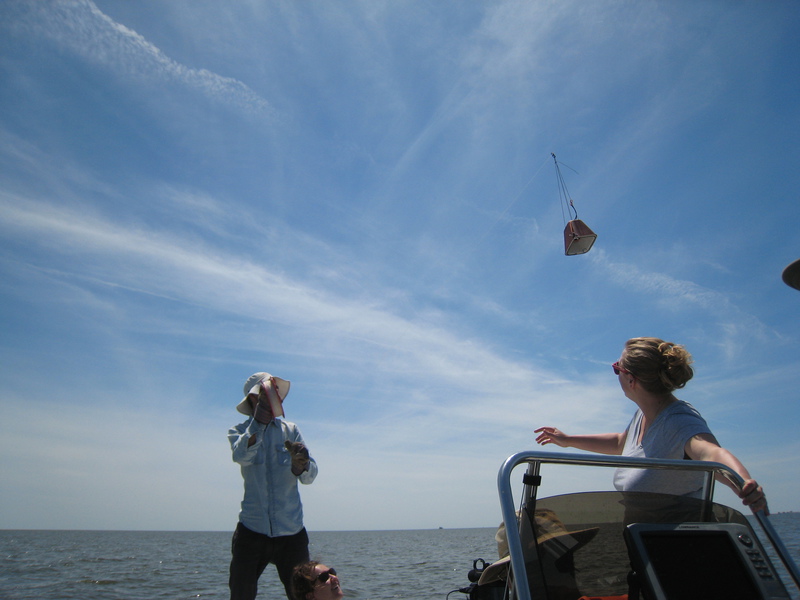
Sandbox
Welcome, organizer!
The aim of this handbook is to introduce you to the resources, responsibilities and benefits of being a public lab organizer. Please be encouraged to reach out to your fellow organizers with any questions!
Table of Contents:
What do we mean by “organizer”?
First steps
Kits and printed resources
Workshop and presentation support
Decision-making
Responsibilities / Recommendations
Communication channels
Useful Document Links:
What do we mean by “Organizer”?
As an organizer, you will receive open access to resources, materials, training, support and internal communication channels. You are invited to take part in Public Lab’s decision making process and participate in shaping the community’s ways of thinking and doing. By sharing our ideas, processes and innovations; organizers contribute to building and expanding the Public Lab’s open infrastructure. Organizers also have responsibilities to the larger Public Lab community. These are outlined in the rest of the document.
First steps
The very first thing that will happen when your nomination is accepted is that you will be welcomed and introduced to everyone through the Organizers google group (see below).
The following three steps should be completed within the first two weeks of your nomination: 1) Fill out the organizer contact form so the Public Lab organizers know how to contact you, send you materials. This is where your welcome packet will be sent. 2) Update the wiki/organizers page to include your name on the top of the list, link it to your profile, add in your preferred location and bump the number count up one. 3) Attend at least one organizers call within the first three weeks.
Kits and printed resources
As a Public Lab organizer, you have access to some free and discounted kits and services.
When you first become an organizer, Kits Team will mail you an organizer’s welcome pack containing: * 50 stickers * 50 about Public Lab cards * 15 Brochures * up to 5 copies of the most recent Grassroots Mapping Forum * one of each flat kit
As an organizer, you also receive a 20% discount at the Public Lab Store with the discount code ORGANIZERS.
Workshop and presentation support
Organizers have created resources that are reusable and updatable! Some of these include:
- We offer a monthly $200 organizer event funding support to organizers. Applications for these funds are due the 20th day of the month, the month prior to the scheduled event. The application form can be found here.
- About Public Lab Slide Deck
- Workshop guides for activities such as a
- Balloon Mapping Workshop,
- Spectrometry workshop
- Wetlands Toolkit
- Gardening Toolkit
- add yours here!
Communications and gatherings:
- The Organizers Summit is an annual event in the days presiding the annual Barnraising. This gathering is aimed at bringing organizers together to set goals, collaborate on projects and build our skills a Public Lab community leaders.
Decision-making
Public Lab Organizers often discuss and debate issues important to our community. Opinion statements may be circulated within the organizer’s group, however no statements will be publically made on behalf of the Public Lab organizers unless supported by group consensus. Statements supporting particular positions may be circulated for signatures, and should be attributed to “the undersigned Public Lab organizers”. When such statements are circulated for signature, indication of how the document will be published shall be provided.
Communication channels
There are a variety of ways to communicate and work with your fellow organizers, and to communicate and work as an organizer with the broader Public Lab community:
Internal: ways to communicate and share with other organizers
- The private organizers discussion list (https://groups.google.com/group/plots-organizers) - though we prize openness, having a private list can be helpful for sensitive topics and planning meetings
- Thursday organizers calls:
- Google Doc notes: for each call date, add your name and your topics/questions.
- Skype (add public.lab as your skype contact) or put your phone # in the notes doc.
External: ways to communicate and share with the greater Public Lab community
- your organizer’s email address: first.last@organizers.publiclab.org and we recommend that you include this on your profile page.
- our Events Google calendar, displayed on http://publiclab.org/events
- presenting at Open Hour: http://publiclab.org/wiki/openhour
- promoting your Public Lab related social media posts over the shared Public Lab channels on Facebook, Twitter, Instagram, Flickr.
- Full details here: http://publiclab.org/wiki/social-media)
Other support: * In development: fellowships, kit incubation, and fiscal sponsorship for projects in initiative areas (Open Air, Open Water, Open Land) * In development: staff support on project management, for example, * dedicated call facilitation for big projects * information management / task management assistance * tracking organizational partners * etc